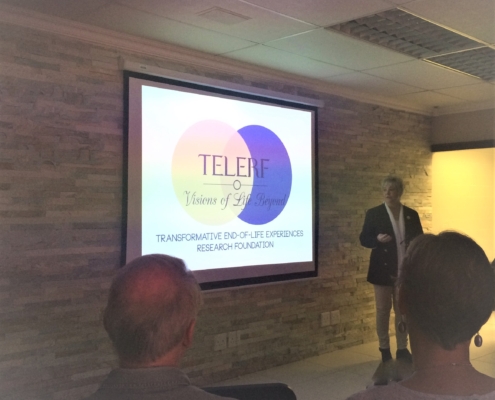The near-death experience (NDE) is a profound and transformative psychological experience reported by some people who have come close to physical death e.g. during cardiac arrest, or who have been in significant danger physically, psychologically or both e.g. car accident, malaria, septicaemia. Cardiologist and NDE researcher, Pim van Lommel, suggests that estimates put the number of NDEs, worldwide, at 25 million over the course of the last fifty years. Experiencers describe the NDE as a mystical, spiritual or transcendental experience, with virtually all suggesting that this is an experience without words to describe it. It is ineffable. It is also unforgettable, and experiencers report retaining vivid, consistent memories of their NDE throughout their lifetime.
The NDE is associated with certain features such as the cessation of pain, heightened emotion, a sense of bliss, changes in thought processes, seeing a light or a being of light, sensing a different reality, contact with deceased individuals, reaching a boundary or point of no return, and an out-of-body experience. The NDE may also involve a ‘life review’. This is a personal evaluation of ones life as a whole, as well as of ones thoughts, actions and intentions throughout, with many NDErs suggesting that this evaluation brings significant insight and meaning to their life going forward. Significantly, transcending all of these features is the experiencer’s continued sense of self throughout the experience.


